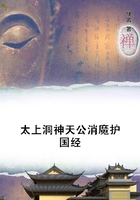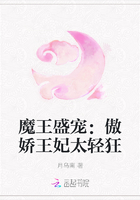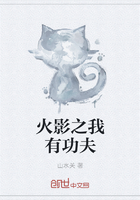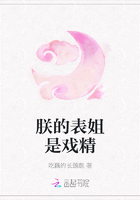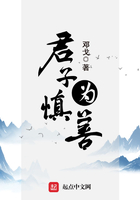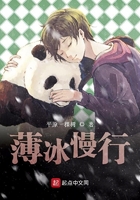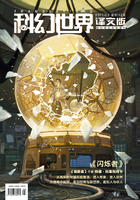It may here be noticed that the practice of setting children prematurely to work, a practice which the state, the legitimate protector of those who cannot protect themselves, has, in our time, wisely and humanely interdicted, prevailed in the seventeenth century to an extent which, when compared with the extent of the manufacturing system, seems almost incredible. At Norwich, the chief seat of the clothing trade, a little creature of six years old was thought fit for labour. Several writers of that time, and among them some who were considered as eminently benevolent, mention, with exultation, the fact that, in that single city, boys and girls of very tender age created wealth exceeding what was necessary for their own subsistence by twelve thousand pounds a year.200 The more carefully we examine the history of the past, the more reason shall we find to dissent from those who imagine that our age has been fruitful of new social evils. The truth is that the evils are, with scarcely an exception, old. That which is new is the intelligence which discerns and the humanity which remedies them.
When we pass from the weavers of cloth to a different class of artisans, our enquiries will still lead us to nearly the same conclusions. During several generations, the Commissioners of Greenwich Hospital have kept a register of the wages paid to different classes of workmen who have been employed in the repairs of the building. From this valuable record it appears that, in the course of a hundred and twenty years, the daily earnings of the bricklayer have risen from half a crown to four and tenpence, those of the mason from half a crown to five and threepence, those of the carpenter from half a crown to five and fivepence, and those of the plumber from three shillings to five and sixpence.
It seems clear, therefore, that the wages of labour, estimated in money, were, in 1685, not more than half of what they now are;and there were few articles important to the working man of which the price was not, in 1685, more than half of what it now is.
Beer was undoubtedly much cheaper in that age than at present.
Meat was also cheaper, but was still so dear that hundreds of thousands of families scarcely knew the taste of it.201 In the cost of wheat there has been very little change. The average price of the quarter, during the last twelve years of Charles the Second, was fifty shillings. Bread, therefore, such as is now given to the inmates of a workhouse, was then seldom seen, even on the trencher of a yeoman or of a shopkeeper. The great majority of the nation lived almost entirely on rye, barley, and oats.
The produce of tropical countries, the produce of the mines, the produce of machinery, was positively dearer than at present.
Among the commodities for which the labourer would have had to pay higher in 1685 than his posterity now pay were sugar, salt, coals, candles, soap, shoes, stockings, and generally all articles of clothing and all articles of bedding. It may be added, that the old coats and blankets would have been, not only more costly, but less serviceable than the modern fabrics.
It must be remembered that those labourers who were able to maintain themselves and their families by means of wages were not the most necessitous members of the community. Beneath them lay a large class which could not subsist without some aid from the parish. There can hardly be a more important test of the condition of the common people than the ratio which this class bears to the whole society. At present, the men, women, and children who receive relief appear from the official returns to be, in bad years, one tenth of the inhabitants of England, and, in good years, one thirteenth. Gregory King estimated them in his time at about a fourth; and this estimate, which all our respect for his authority will scarcely prevent us from calling extravagant, was pronounced by Davenant eminently judicious.
We are not quite without the means of forming an estimate for ourselves. The poor rate was undoubtedly the heaviest tax borne by our ancestors in those days. It was computed, in the reign of Charles the Second, at near seven hundred thousand pounds a year, much more than the produce either of the excise or of the customs, and little less than half the entire revenue of the crown. The poor rate went on increasing rapidly, and appears to have risen in a short time to between eight and nine hundred thousand a year, that is to say, to one sixth of what it now is.
The population was then less than a third of what it now is. The minimum of wages, estimated in money, was half of what it now is;and we can therefore hardly suppose that the average allowance made to a pauper can have been more than half of what it now is.
It seems to follow that the proportion of the English people which received parochial relief then must have been larger than the proportion which receives relief now. It is good to speak on such questions with diffidence: but it has certainly never yet been proved that pauperism was a less heavy burden or a less serious social evil during the last quarter of the seventeenth century than it is in our own time.202In one respect it must be admitted that the progress of civilization has diminished the physical comforts of a portion of the poorest class. It has already been mentioned that, before the Revolution, many thousands of square miles, now enclosed and cultivated, were marsh, forest, and heath. Of this wild land much was, by law, common, and much of what was not common by law was worth so little that the proprietors suffered it to be common in fact. In such a tract, squatters and trespassers were tolerated to an extent now unknown. The peasant who dwelt there could, at little or no charge, procure occasionally some palatable addition to his hard fare, and provide himself with fuel for the winter.




